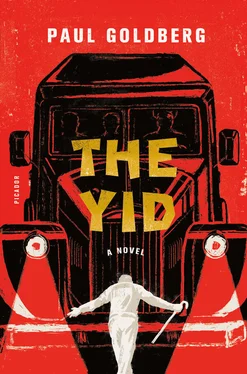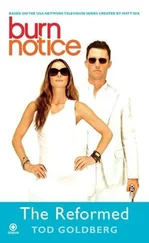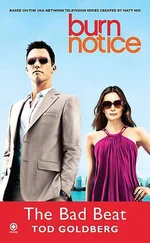“Has it begun?”
“I don’t think so. These were simple thugs.”
“I saw the Black Maria behind that hedge three days ago. I saw the corpses. The throats of two men were slit, and one was stabbed. I watched you dump the bodies.”
“So you were there,” says Kogan. “I’m not entirely surprised.”
“You were too busy making humor of Friederich Robertovich’s vomit. After he drove away, I followed on skis. I saw him kill Butusov.”
“You did … you did … Now, please, go as far as the rails will take you,” says Kogan. “I’ll give you money.”
“Aleksandr Sergeyevich, I don’t need protection.”
“But you are a lady!”
“Thank you for what you’ve done. This is enough. I am your comrade. I need some burlap sacks, a sled, and a long piece of rope.”
“You’ll find it in the shed,” says Kogan.
“When I return, I’ll want to know the plan for our attack.”
“You are a copy of your father,” says Kogan. “A clear head.”
“I’ve feared too much for too long. Now I will fight. I’ll join your band.”
“No,” says Kogan. “That was, emphatically, the answer I prepared in the fear that your determination would lead you to our plot. I have my lines, yet I can’t say them. I have no right. You aren’t the beaten cub who crossed this doorway seven months ago. My lines be damned. Please, join us, comrade.”
* * *
“She knows,” says Kogan as Levinson walks in.
“You blab again.” Levinson scowls. “Soon, all of Malakhovka will know! I have a joke: Two Jews meet at the kolkhoz market. ‘Have you heard, Levinson and Kogan have formed an underground counterrevolutionary organizatsiye…’ ‘You don’t say!’”
KIMA: How does your joke end?
LEVINSON: I don’t know yet.
LEWIS: It may not be a joke.
KIMA: What can I do to make it real?
KOGAN: You’ve done enough.
LEVINSON: Not so fast. I need red cloth.
LEWIS: What for? Don’t tell me there are costumes.
KIMA: How much red cloth?
LEVINSON (counting on his fingers) : One … two … three … Four or five large flags’ worth.
KIMA: I’ll bring a dozen.
KOGAN: This isn’t the time to die. Our Kima is ready to read Pushkin.
* * *
In the shed, Kima puts Tarzan’s shattered head inside a noose. She runs the rope to his feet and pulls, until the corpse is folded in half and Tarzan’s single remaining eye is left to stare at his leaden ankles.
She loops the rope three more times to keep the body folded and asks Lewis for a burlap sack. Lifting the head and ankles, she places the burlap under and asks Lewis to lift the other half.
The sack closes neatly above Tarzan’s buttocks. She slips another sack on top of the first and drops a few handfuls of hay inside. The second sack closes above Tarzan’s head and feet. Repeating the same procedure with Kent’s corpse, she ties the sacks to Kogan’s sled.
“I’ll come back after dark,” she says, and leaves for work.
* * *
That night, after the sled slowly pulled by Kima and Lewis disappears from view, Moisey Semyonovich sits down with a book, and Levinson approaches the stove.
“Do you have the thing that spins?” he asks Kogan, looking at the watery red fluid in the cauldron.
“My beytsim ?”
“ Fok yu! Laboratory thing. A dreidel that you put things in and spin, to separate the dreck. I saw you use it.”
“Laboratory dreidel … Let me think … To separate the dreck. I had it … You mean a centrifuge?”
“That’s right. You have it?”
“No.”
“What should I do with this?”
“The blood? You dump it in the outhouse.”
“What’s a blood ritual without blood? Are you insane?”
“Remember when they stood you on your head onstage? You wore a leotard. There was a tefillin on your leg.”
“I’ll boil it.”
“Boil what?”
“The blood.”
“What are you doing, trying to reduce it?”
“I guess. To get the snow out.”
“Why do you need my blood? Isn’t the purpose to obtain the blood, to bleed the victim ? And what about the thugs? You killed two just today.”
“This is my play. When it’s your turn, you’ll write your own. How much should I boil out?”
“Bring it where I can see.”
Kogan puts on his glasses. His nostrils rise slightly as he intensely ponders the pinkish, watery liquid.
“Why’s there fat on top? And what’s this? Onions?”
“A little shkvarkes from last night.”
“You couldn’t wash it out?”
“I didn’t know. How much?”
“About three quarters. What was it like?”
“What was what like?”
“What was it like to stand on your stubborn, empty head and wear a leotard and tefillin? How did the world look?”
“The world looked almost right.”
The reader knows better than to believe old men. You should have seen Levinson then, in 1921, when proudly upside down he stood, in a hall painted black.
The players who joined the troupe of Alexander Granovsky sought neither fame nor bread. If fame and bread were what you wanted, you’d surely escape from revolutionary Russia.
But if you shared Granovsky’s vision of the modern world, as Levinson did, you’d dance amid the cataclysm of crumbling empires. His was the world of big equations. World equaled theater, Theater equaled World. Stage, orchestra, and seats merged into one, an entity of art, a modern unit, where acting equaled music, which was the same as props and pantomime. A leotard equaled canvas, which equaled cog, which equaled sword, which equaled turbine. All became one, a monolithic unit of justice, truth, and beauty.
In those days, Levinson learned to get out of bed in a way that symbolized cubism, extending his left leg in the direction of the left corner of his mattress, the right leg in the direction of the right. And then he stretched his arms in the same manner.
* * *
In those days, Levinson didn’t give applause a thought. His modern world had no room for talent. Man’s goal was to become machine, an instrument of history and of production. As industry and art became the same, the loins of art would merge with propaganda, and propaganda, being the truth, would serve as the people’s education.
Old God was lowercased to god, a cosmic, powerless dwarf of heaven. And upside down, Levinson held up his godless world, like an inverted Atlas. A leotard, tefillin, an ancient prayer to mock. Would anyone dare to ask for more?
You should have asked him then, “What does the world look like?”
“The world is good,” he would have said. “Because we gave it reason.”
In those days, he reveled in the wholeness of an ensemble, the rush of being onstage, and — yes, of course — the laughs.
Standing over a cauldron on the evening of February 27, 1953, Levinson is beyond pondering big equations.
“It’s turning brown!” he shouts to Kogan.
“What is?”
“Your blood!”
“My blood … oh, in your cauldron. The red blood cells are breaking down. They are weak.”
“What should I do?”
“Add butter.”
“I don’t have butter!”
“Then use lard. It’s better anyway.”
Levinson lops off a thumb-sized piece of lard and throws it in the cauldron. Meanwhile, Kogan returns to the meditative state of a man who has sustained two blows to the head.
“It’s still brown!” shouts Levinson.
“What’s still brown?”
“The blood!”
“Which blood?”
“The blood I’m boiling! Your blood, old goat!”
“I guess that’s good,” says Kogan. “Let me see…”
Kogan waves his right hand over the cauldron, driving the fumes toward his nose. The smell of the glue-like, brown substance works like a tonic.
Читать дальше












